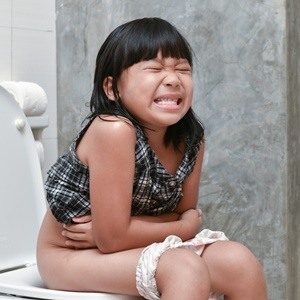
The causes of diarrhoeal disease include:
- Infection (bacterial, viral, parasitic)
- Contaminated water
- Contaminated food
- Poor hygiene and sanitation
Infection
Diarrhoeal disease may be caused by various bacterial, viral and parasitic organisms. These organisms may be found in contaminated water, food or soil. Children who are more likely to become infected are those who live in poor sanitary surrounding as well as those who aren’t exposed to good hygiene practices (e.g. frequently washing hands with clean water and soap).
Diarrhoeal disease is most common in lower-income countries where children may also suffer from poor nutrition, thus placing them at higher risk of death.
Rotavirus, E.coli, cryptosporidium, shigella, listeria and campylobacter are examples of organisms that are responsible for causing most of the diarrhoeal infections in lower-income countries. However, diarrhoeal disease isn’t only limited to lower-income countries, as children in high-income countries may also fall ill from consuming contaminated food and water.
Diarrhoeal disease can spread quickly by touch, especially in settings where many children are together in one place (i.e. the crèche).
Great care must be taken to:
- Wash hands with soap and clean water before eating, after using the toilet and after playing outside or with pets
- Practice good personal hygiene
- Improve the sanitation conditions around the home
- Ensure vaccination
Contaminated water
Water that’s been contaminated with human or animal faeces (from sewage or septic tank leakages) shouldn’t be consumed, as this water is most likely contaminated with bacterial organisms that cause diarrhoeal disease.
If you’re unsure whether or not your water is safe, it’s strongly recommended that you boil your drinking water before consuming it. Unsafe water storage and handling is also a major contributor to diarrhoeal disease. Fish and seafood from polluted water sources may also contribute to the risk.
Take great care to:
- Store and handle used water properly
- Consume clean and safe water (if unsure, rather boil and allow to cool)
- Consume fish and seafood from a trusted source
Contaminated food
Food that hasn’t been prepared or stored properly is a major cause of diarrhoeal disease.
Take great care to:
- Keep food surfaces clean
- Wash all utensils (plates/platters/cutlery) soon after they’ve been used
- Wash fruits and vegetables before eating
- Separate raw from cooked food
- Cook meat and eggs thoroughly and to the appropriate temperature (more than 68 degrees Celsius)
- Store and serve food correctly and at safe temperatures
- Use safe water and raw materials
- Don’t eat foods that are past their “best before” dates
Certain foods are more prone to becoming infected with bacteria, making them more likely to cause food-borne illnesses when not handled properly. Examples of these potentially hazardous foods are:
- Meat, including deli meats such as Viennas, polony and ham
- Eggs
- Dairy
- Cut green leafy vegetables (i.e. cut cabbage)
- Cut tomatoes
- Cooked or rehydrated potatoes, rice, pasta and beans
- Cooked fruit and vegetables
- Cut melons
- Sprouts
- Garlic and oil
- Fresh herbs and oil
Reviewed by Kim Hofmann, registered dietitian, BSc Medical (Honours) Nutrition and Dietetics, BSc (Honours) Psychology. August 2018.
Image credit: iStock




 Publications
Publications
 Partners
Partners











